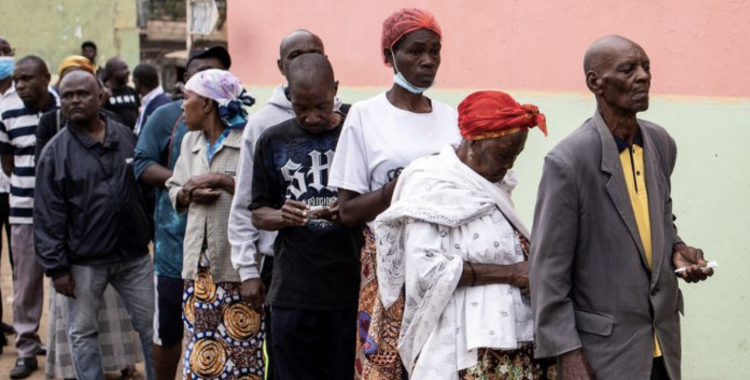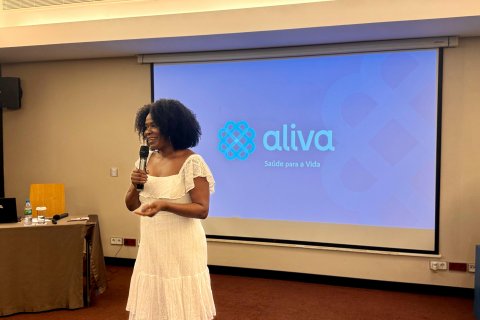"There are almost as many cases of people who cannot vote as those who vote", says an element at the polling station in Duapandula, after another voter mistakenly sought to vote at that table, under a tree.
Shortly before, a woman who lives in the community wanted to vote, but her registration was still in Bié, 720 kilometers away. "To vote today, not even flying," jokes another polling station member.
The elderly woman shrugs her shoulders and leaves, accompanied by her daughter, who is going to vote elsewhere. She has lived in the area for 12 years, coming from the South, and has never updated her address.
In Duapandula, in the middle of a dirt road in the interior of the province of Bengo, north of Luanda, there are 13 delegates and four members of the polling station and they only voted, at 2:00 pm, under the wide tree that shades the ballot box, 152 voters out of 288 registered.
"We are more delegates [partisans] than voters", says, smiling, the representative of the Broad Convergence for the Salvation of Angola - Electoral Coalition (CASA-CE).
Emanuel Pires, president of the polling station, agrees. "The parties have redoubled their efforts and are getting tougher, with more people. Thirteen delegates is a lot."
Next to the table, the inspectors are lined up, with two representatives from five parties, contrary to what the regulation establishes, which requires only one of the elements, either the effective or the substitute. But in Duapandula they are all, under the shade of the tree that the locals call "Pau de Picos".
A few kilometers away, in Saricos, a fishing village, Leopoldina Panga is the president of the 2856 assembly and says that the problems registered are few. The assembly has the lists posted on the school door because it has not received computers from the National Electoral Commission and there are few who still seek to vote at the end of the morning.
But that's not the case for Bernardo, 23, who wants to vote for the first time and can't. He arrived at Saricos' school and, after all, his polling place is a two-hour walk away. "I'm not going anymore, I don't have a motorcycle. I'm going to give up on the change", says, disheartened, Bernardo, wearing a faded Borussia Dortmund t-shirt.
More insistent is António Miguel in Duapandula. He has already paid 600 kwanzas for motorcycle taxis to find his polling station. "It's not here yet, it's further away. I have to vote, it's an obligation and a responsibility", he says, ending in a paused way, as if dictating to the journalist the importance of today.
Duapandula means "thank you" in the native Umbundu language and Missena Azul, 30, is also grateful for the right to vote, which she was able to exercise.
"I've come from Panguila, far away. But I came by car, went down, down, until I found my place and I'm here", says Missena Azul, dressed in blue. Before, faced with who wanted to photograph her at the time of voting, she was uncomfortable.
"Not without my wig. Not without it." And the plenary of the table there accepted that she interrupt the vote to go to the car to get her long hair with black braids.







